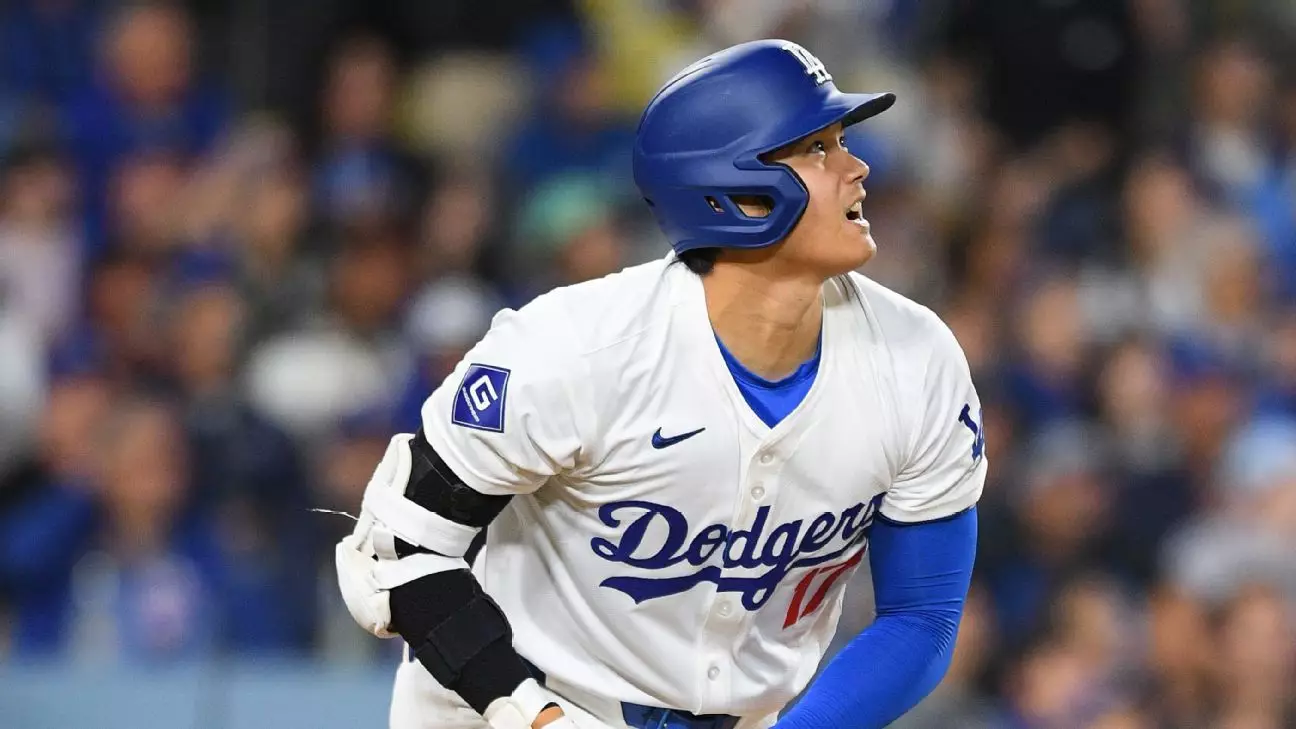The world of sports memorabilia is rife with excitement and contention, but few recent events have generated the intense emotions and legal disputes seen in the battle over Shohei Ohtani’s historic 50/50 home run ball. The situation has evolved into a legal drama after an 18-year-old fan named Max Matus filed a lawsuit claiming rightful ownership of the ball, sparking a heated dialogue around property rights, fan culture, and the value of major league collectibles.
The drama began at LoanDepot Park in Miami, Florida, on September 19, 2023, when Ohtani’s extraordinary feat placed him in the record books as the only player to hit 50 home runs and steal 50 bases in a single season. While celebrating his recent 18th birthday, Matus recorded the moment as Ohtani hit his historic home run. Standing by the fence in left field, he made an attempt to secure the ball, which he claims he successfully grabbed before it was reportedly wrested from his grip by another fan, Chris Belanski. This confrontation set the stage for the ensuing legal battle.
Matus quickly took action by filing a civil lawsuit on Wednesday, preemptively seeking an emergency injunction to halt Goldin Auctions’ anticipated auction of the ball. His attorney, John Uustal, highlighted the urgency of the matter, underscoring the irreparable harm that would occur if the ball were sold before the courts could determine rightful ownership. Uustal argued that, once the ball is no longer in possession of Matus, restoring it would be virtually impossible, leading to a loss of uniqueness that cannot be compensated financially.
The judge involved in the case did grant certain commemorative clarity, allowing the auction to proceed for its planned duration, provided the ball cannot actually be sold until the case is settled in a full evidentiary hearing scheduled for October 10. This ruling reflects not only Matus’s claims of rightful ownership but also the complexities involved in property laws concerning personal items recovered at public events.
At the heart of this issue lies more than the ball itself; it’s about the cultural phenomenon of sports memorabilia, the relationship between players and fans, and both financial and emotional value. The opening bid for the auction is set at a staggering $500,000, a reflection of Ohtani’s monumental achievements and the fervor of baseball collectors. However, this compels a larger question: at what cost do we value such items? The implications of ownership extend into personal identity, nostalgia, and the very essence of baseball as a communal experience.
As the auction house conveys its excitement to present this iconic piece of memorabilia, one cannot overlook the emotional toll on Matus, who views the ball as a milestone of passion and celebration, now marred by the conflict surrounding it.
The outcome of this case could have lasting effects on the landscape of sports memorabilia auctions. If Matus prevails in court, it might pave the way for more stringent laws governing ownership claims over items acquired in public venues. Other collectors will undoubtedly be watching this case closely—there’s a fine line between enthusiasm for collecting and the legal ramifications that follow when passions lead to disputes.
Additionally, the case illustrates the changing dynamics of sports fandom. As more fans engage in collecting prized moments from their favorite teams and players, the intersection of law and personal experience becomes increasingly relevant. This particular case serves as a prototype regarding how rights are asserted and disputed in the fan-driven world of sports memorabilia.
Though the auction is underway, the true value of Shohei Ohtani’s 50/50 home run ball extends far beyond its monetary worth. It serves as a symbol of personal attachment, sports history, and the challenges faced when passion meets legal issues. Whether this dispute concludes in favor of Matus or not, it brings to light significant discussions around ownership, value, and the ongoing legacy of sports in our lives. As the hearing approaches, all eyes will be on the courtroom, awaiting the resolution of a case that could redefine how we view ownership in the world of sports.


Leave a Reply